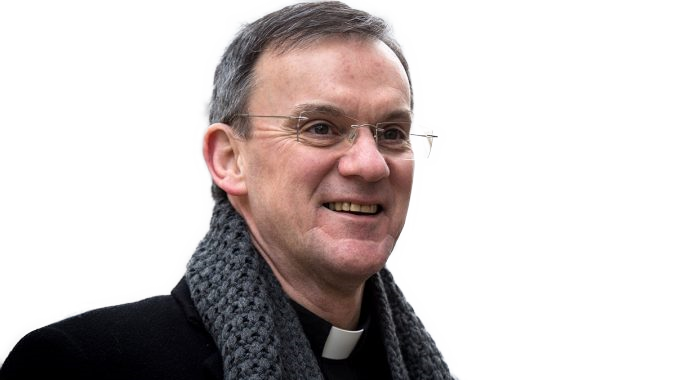and maintaining some religious routine, but an on-going journey of discovering how we can be like Christ, bringing love and hope and encouragement into our world and into the lives of the people that God places in our lives each day, be they family members, friends, work colleagues or even strangers. St Paul calls us “ambassadors for Christ” which is both a privilege and an enormous challenge. To be ambassadors, we are called to continue the work of Christ, imitating his actions and ministry in all we do. By the synodal way, we are invited to continue that prayerful listening so that we are constantly considering, and reviewing, how best we may live the Gospel values in our Diocese today. What encouragement might we find in the life of St Francis, as we celebrate this anniversary? Here was a man who lived his convictions, radically. As a young man, he enjoyed wealth and willingly armed himself for conflict against the neighbouring city of Perugia. But when he saw conflict as incompatible with his faith, he worked for peace and for the relief of poverty, witnessed in his own personal poverty and in his providing for the poor. He understood the need for a time of silence in his life, for prayer in the presence of God. Pope Leo urges us to see that conflict does not provide any lasting solutions and that we can all be peacemakers. He also speaks often of the need to find some silence for prayer in our busy and noisy lives. Once St Francis had come to believe something, he dedicated himself to pursuing it, best seen perhaps in his understanding of the union of our lives and activities with the environment and the need to care for creation and our common home. It is that same sense of conviction and dedication which we see in the short life of St Carlo Acutis. What a privilege it was to receive the relic in this Diocese, for five days. Thousands of people came to pray, and to hear of St Carlo’s dedication to attending daily Mass, his desire for frequent confession, the praying of the rosary and spending time before the Blessed Sacrament. He found real joy and peace in celebrating his faith in prayer and sacrament, which in turn prompted his generosity to those around him and his simplicity of life. All this was done in the context of our times and the positive and creative use of the internet. As the family of the Church in the Diocese of Salford, we are people who are so diverse in terms of our experience and gifts. That diversity is our strength so that, working together, with all those gifts and talents and skills, we make present the body of Christ. In these days of the Season of Lent, let us all be courageous in asking ourselves, how might we imitate the energy and enthusiasm and conviction of St Carlo Acutis and St Francis of Assisi and make Christ present through the daily actions of our lives. And, in these days, let us offer our prayers for Archbishop Richard Moth, as he begins his ministry as Archbishop of Westminster and his shepherding of the Church in England and Wales, guiding us all in our role as “ambassadors for Christ”. And, as the family of the Diocese of Salford, we continue to pray “Stay with us, Lord, on our Journey”. With my best wishes, prayer and blessing,
+John Arnold Bishop of Salford

